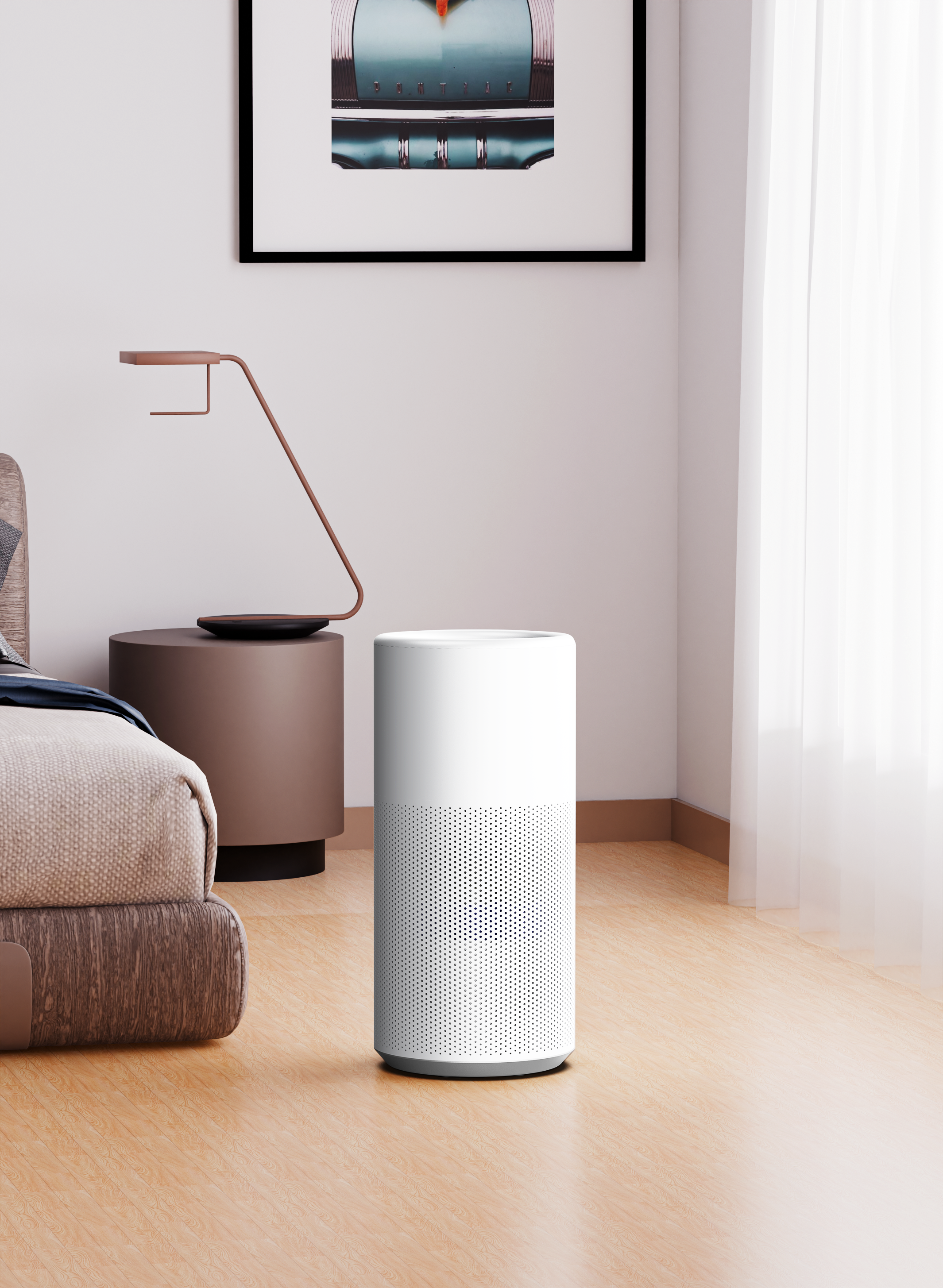Can Humidifiers Help with Snoring and Sleep Quality?
The Impact of Moisture Levels on Nighttime Breathing Patterns
Dry air in bedrooms creates numerous respiratory challenges that can disrupt sleep and exacerbate snoring issues throughout the night. Humidifiers introduce essential moisture into the sleeping environment, helping to maintain optimal conditions for uninterrupted breathing. The relationship between humidity levels and airway function explains why many people experience reduced snoring when using humidifiers in their bedrooms. Properly moistened air prevents the delicate tissues in the nose and throat from becoming irritated and swollen during sleep. Humidifiers combat the drying effects of heating systems and air conditioning that often trigger congestion and breathing difficulties. By creating a more balanced microclimate, these devices address one of the fundamental causes of sleep-disordered breathing without medications or invasive treatments.
How Humidifiers Affect Airway Function
Moisture and Nasal Passage Health
Humidifiers help maintain proper moisture levels in nasal passages that frequently dry out during sleep, especially in climate-controlled environments. The added humidity prevents crust formation and irritation inside the nose that can force mouth breathing and subsequent snoring. Well-hydrated nasal membranes filter and condition air more effectively as it travels toward the lungs throughout the night. Humidifiers prevent the tiny hair-like cilia in nasal passages from becoming immobile due to dryness, allowing them to continue clearing mucus and debris. The moisture also reduces inflammation in sinus tissues that might otherwise swell and obstruct airflow during sleep. People using humidifiers often report easier nasal breathing that helps them avoid the mouth-breathing pattern strongly associated with loud snoring.
Throat Tissue Protection Mechanisms
The moisture from humidifiers coats and protects delicate throat tissues that vibrate to create snoring sounds when they become too dry. Hydrated throat membranes remain more flexible and less prone to the fluttering motions that generate disruptive nighttime noises. Humidifiers help maintain proper mucus consistency in the throat that serves as a natural lubricant and protective barrier. The devices prevent the soft palate and uvula from becoming dry and rigid, reducing their tendency to vibrate as air passes over them during sleep. Many snorers find that consistent humidifier use makes their throat feel noticeably smoother and less irritated upon waking, indicating reduced tissue inflammation throughout the night.

Scientific Evidence Supporting Humidifier Use
Clinical Studies on Snoring Reduction
Several sleep studies have demonstrated measurable reductions in snoring intensity and frequency when participants use bedroom humidifiers consistently. Research shows improved airway patency in subjects sleeping in humidity-controlled environments compared to dry conditions. Polysomnography tests reveal fewer breathing obstructions and arousals when relative humidity stays within the 40-60% range that humidifiers help maintain. The studies consistently find that properly hydrated mucous membranes offer less resistance to airflow, resulting in quieter breathing during sleep. While humidifiers may not cure all snoring cases, the research confirms they can significantly improve mild to moderate snoring caused primarily by dry air conditions. The evidence suggests humidifiers work best for positional snorers and those whose symptoms worsen during winter months or in arid climates.
Sleep Quality Improvement Metrics
Beyond snoring reduction, scientific measurements show humidifiers contribute to more restorative sleep patterns overall. Study participants demonstrate increased time in deep sleep stages when using humidifiers, particularly during heating seasons. Humidity-regulated sleep environments correlate with fewer awakenings caused by dry mouth or throat irritation throughout the night. The research indicates improved oxygen saturation levels in subjects using humidifiers, suggesting better breathing efficiency during sleep. People sleeping with humidifiers report higher subjective sleep quality ratings and easier morning awakenings in controlled trials. The combined objective and subjective data make a compelling case for humidifiers as part of a comprehensive sleep hygiene regimen.
Optimal Humidifier Usage Practices
Ideal Humidity Level Maintenance
The most effective snoring reduction occurs when humidifiers maintain bedroom humidity between 40-50% relative humidity. This range provides sufficient moisture for airway comfort without creating conditions favorable for mold or dust mite proliferation. Digital humidifiers with built-in hygrometers automatically regulate output to maintain ideal humidity levels throughout the night. Cool mist humidifiers often work better for snoring reduction because they add moisture without warming the air that can sometimes exacerbate nasal congestion. Proper humidifier placement near the bed but not too close prevents over-humidification of just the immediate area while ensuring the sleeper benefits from the moisture. Regular cleaning prevents mineral buildup and microbial growth that could counteract the positive effects on breathing.
Timing and Duration Considerations
Consistent humidifier use throughout the entire sleep period yields better snoring reduction than intermittent operation. Running humidifiers for at least 30 minutes before bedtime allows the bedroom air to reach optimal moisture levels before sleep begins. Many modern humidifiers feature programmable timers that adjust output based on typical sleep schedules and room conditions. All-night operation works best for chronic snorers, while those with seasonal symptoms may only need humidifiers during dry winter months. The cumulative effect of regular humidifier use appears more effective than occasional application, as airway tissues maintain better hydration over time. Pairing humidifier use with other anti-snoring strategies like side sleeping and allergy control often produces the best results.
Special Considerations for Different Humidifier Types
Cool Mist Versus Warm Mist Benefits
Cool mist humidifiers generally prove more effective for snoring reduction because they help maintain open nasal passages throughout the night. The cooler vapor doesn't risk exacerbating nasal inflammation like warm mist might for some sensitive individuals. Ultrasonic cool mist humidifiers operate quietly without disturbing sleep while providing the consistent moisture that prevents airway drying. However, some people find warm mist humidifiers more comforting during cold weather and equally effective for their snoring issues. The choice between cool and warm mist often comes down to personal comfort, though cool mist models typically require less maintenance and pose fewer safety concerns.
Whole-House Versus Portable Unit Effectiveness
Whole-house humidifiers attached to HVAC systems maintain consistent humidity better but may not target the bedroom area sufficiently for optimal snoring reduction. Portable bedroom humidifiers allow more precise control of the immediate sleep environment where breathing patterns matter most. Smaller humidifiers designed specifically for nighttime use often include features like nightlights and whisper-quiet operation that enhance the sleep experience. The most effective approach might combine whole-house humidity control with a targeted bedroom humidifier for maximum snoring prevention. People living in extremely dry climates often benefit from this dual-system approach to maintain airway moisture all night.
Complementary Strategies for Best Results
Hydration and Humidity Synergy
Drinking adequate water throughout the day enhances the benefits humidifiers provide for snoring reduction at night. Proper systemic hydration ensures airway tissues have sufficient internal moisture that humidifiers then help maintain externally. Avoiding alcohol before bedtime prevents dehydration that could counteract the humidifier's effects on throat tissues. Using saline nasal sprays in conjunction with humidifiers provides direct moisture to nasal passages that might need extra hydration. These combined approaches create multiple moisture reservoirs that protect airway tissues throughout the entire respiratory system during sleep. The synergy between internal hydration and external humidification often produces better snoring reduction than either approach alone.
Allergen Control Combined with Humidification
Pairing humidifiers with air purifiers addresses both moisture levels and airborne irritants that contribute to snoring. Maintaining clean, allergen-free air prevents the inflammation that narrows airways and worsens snoring despite adequate humidity. Regular washing of bedding in hot water eliminates dust mites that thrive in humid environments if other controls aren't in place. Hypoallergenic pillow and mattress covers create a cleaner sleep environment that allows the humidifier to work more effectively. This comprehensive approach to sleep environment management often yields better results than simply adding moisture to allergen-filled air. The combination reduces multiple contributors to snoring simultaneously for more significant improvement.
FAQ
How quickly can I expect snoring improvement with a humidifier?
Many users report noticeable snoring reduction within the first week of consistent humidifier use, though optimal results typically appear after 2-3 weeks of regular nighttime operation.
Are there any risks of using humidifiers for snoring?
Over-humidification above 60% can promote mold growth, and poorly maintained humidifiers may disperse minerals or microbes - regular cleaning and humidity monitoring prevent these issues.
Which type of humidifier works best for severe snorers?
Cool mist ultrasonic humidifiers with large capacity tanks often provide the most consistent moisture delivery for people with significant snoring problems throughout the night.

 EN
EN
 AR
AR
 NL
NL
 FR
FR
 DE
DE
 EL
EL
 HI
HI
 IT
IT
 JA
JA
 KO
KO
 PL
PL
 PT
PT
 ES
ES
 ID
ID
 VI
VI
 TH
TH
 TR
TR
 MS
MS
